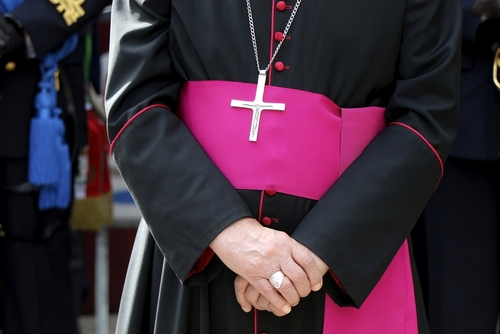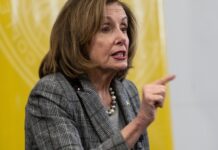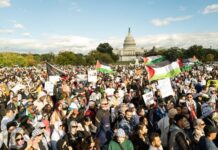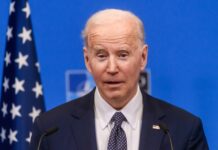
In a recent turn of events that has sent ripples through the Catholic community, Bishop Strickland of Tyler, Texas, was unexpectedly removed from his diocese. This decision, which came without an official explanation from the Vatican, has raised questions about the underlying influences within the Church’s hierarchy.
Bishop Strickland, known for his conservative stance and adherence to traditional Christian doctrine, has suggested that his removal is not a simple matter of church politics but rather the result of “forces” at work within the Church. These forces, he implies, are not in favor of the gospel’s immutable truths but instead seek to alter or disregard them entirely.
The forced removal of @BishStrickland seems like a great opportunity for American bishops to come together in their brother’s defense.
Public support for #BishopStrickland and maybe even denunciation of the decision by #PopeFrancis to remove him would go a long way.
It seems… pic.twitter.com/urTSv8SHnj
— Richard Rodgers (@RichardYRodgers) November 13, 2023
The Bishop’s comments hint at a struggle between the preservation of long-standing religious teachings and a push towards modernization within the Church. He alludes to a group within the Church that would prefer to edit or ignore parts of Sacred Scripture, challenging the very foundations that have been upheld by saints and martyrs for nearly two millennia.
Strickland’s perspective aligns with the biblical notion of spiritual warfare, as described by Saint Paul. He speaks of “powers and principalities of evil” that are not merely human adversaries but represent a more profound, spiritual resistance to the truth of Jesus Christ.
WATCH: My exclusive interview with Bishop Strickland, where I ask him all the questions on everyone's heart in the midst of his unjust cancellation.
Pray for this good Bishop. #IstandwithBishopStrickland pic.twitter.com/G1TaPO0c4P
— John-Henry Westen (@JhWesten) November 12, 2023
This narrative of a battle against unseen forces is not new to the history of the Church. However, it has gained renewed attention in the context of today’s global challenges and the perceived shift in the Church’s direction under current leadership.
The Bishop refrains from placing the blame solely on Pope Francis, acknowledging that the pontiff is subject to various pressures that may influence his decisions. This nuanced view recognizes the complexity of leading a global religious institution and the multifaceted challenges it faces.
Despite the turbulence and uncertainty, Bishop Strickland remains hopeful. He emphasizes that the truth of Christ is eternal and will ultimately prevail, despite temporary setbacks or deviations from the path laid out by the gospel.
The faithful are called to persevere through these trying times, holding fast to the core tenets of their belief. The Bishop’s message is one of resilience and faith in the enduring power of the Church’s foundational truths.
As the Catholic community processes this development, many look to figures like Bishop Strickland for guidance. His steadfast commitment to the gospel serves as a beacon for those who fear the dilution of their faith in an ever-changing world.
In conclusion, while the circumstances surrounding Bishop Strickland’s removal remain shrouded in mystery, his words serve as a reminder of the ongoing spiritual battles that shape the Church’s journey. It is a call to vigilance and prayer for the faithful, as they navigate the complexities of faith in the modern era.











